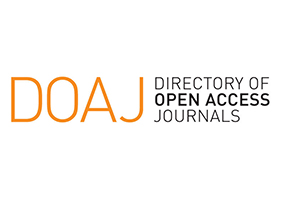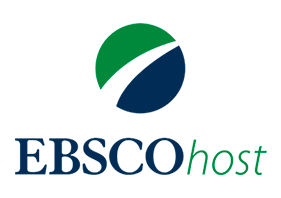A Critical Discourse Analysis of Narratives on the beginning of the ‘Tigray ’ war
DOI:
https://doi.org/10.33304/revinv.v19n2-2024003Keywords:
ethnic groups, Ethiopia, war, East AfricaAbstract
The main objective of this article is to analyze the narratives on the beginning of the "Tigray" war, or the northern Ethiopian war. The paper argues that there are always two sides to every story, and those about the beginning of the Tigray war were no exception. To that end, the purpose of this article is to unpack the various narratives surrounding the start of the Tigray war and to reveal the ideologies hidden behind these narratives. The article employed a qualitative critical discourse and narrative analysis, and the data were collected from several media outlets. The information includes news stories, interviews, future stories, expert analysis, documentaries, and official briefings from both sides of the conflict. The findings show that the TPLF and the federal government used competing narratives regarding the beginning of the war. Mainly, there are two dominant narratives: the first bullet view and the buildup view. Both reports were loaded with propaganda and framed in a "them-and-us" manner. Thus, both parties accuse each other of starting the war and causing devastating destruction.
Downloads
References
Abdissa, Z. (2023). Media space and the state of media associations in Ethiopia: A baseline study. Center for Advancement of Rights and Democracy. https://www.cardeth.org/sites/default/files/Media%20space%20and%20media%20associations%20in%20Ethiopia.pdf
Alemayehu, M. (2022). Post-2018 media landscape in Ethiopia: A review. Center for Advancement of Rights and Democracy. https://www.cardeth.org/wp-content/uploads/2023/01/CARD-Media-Landscape-in-Ethiopia.pdf
Aljazeera. (2020, October 20). Ethiopia’s Tigray blocks general’s appointment in blow to Abiy. https://www.aljazeera.com/news/2020/10/30/ethiopia-tigray-blocksgenerals-appointment-in-swipe-at-abiy
Andargachewe, T. (1993). The Ethiopian revolution: 1974-1987. Cambridge University Press. https://etheses.lse.ac.uk/1115/1/U044491.pdf
Anderson, D. (1995). The collapse of Yugoslavia: Background and summary. Parliamentary Research Services. https://www.fransamaltingvongeusau.com/documents/cw/CH2/34.pdf
Annys, S., Vandenbemt, T., Negash, E., de Sloover, L., Ghekiere, R., Haegeman, K., Temmerman, D., & Nyssen, J. (2021). Tigray: Atlas of the humanitarian situation. https://www.researchgate.net/publication/349824181
Barbehön, M. & Münch, S. (2022). The politics of narrative (research): A success story. Zeitschrift für Diskursforschung, 2, 358-365. Doi: 10.3262/ZFD2202358
BBC. (2021, June 29). Ethiopia’s Tigray war: The short, medium, and long story. BBC News. https://www.bbc.com/news/world-africa-54964378
Berhane, D. (2023). War on Tigray: Genocidal axis in the Horn of Africa.
Branch, A. & Mampilly, Z. (2015). Africa uprising: Popular protest and political change. Zed Books.
Burr, V. (1995). An introduction to social constructionism. Routledge.
Center for Advancement of Rights and Democracy. (2021). Social media situation report on Tigray conflict (February 01-March 31, 2021). https://www.cardeth.org/social-media-situation-report-on-the-conflict-in-tigray-covering-period-february-1-march-31-2021
Center for Preventive Action. (2023, December 19). Conflict in Ethiopia. Global Conflict Tracker. https://www.cfr.org/global-conflict-tracker/conflict/conflict-ethiopia
Cochrane, L. & Bahru, Z. (2019). Discussing the 2018/19 changes in Ethiopia. NokokoPod, 2019(1), 1-16. https://www.researchgate.net/publication/332392891_Discussing_the_201819_Changes_in_Ethiopia_Bahru_Zewde
Cochrane, L. & Skjerdal, T. (2015). Reading the narratives: Relocation, investment and development in Ethiopia. Forum for Development Studies, 42(13), 1-21. https://doi.org/10.1080/08039410.2015.1080183
Editorial Board. (2021, January 27). Ethiopia’s leader won the Nobel Peace Prize. Now he’s accused of war crimes. The Washington Post. https://www.washingtonpost.com/opinions/2021/01/27/ethiopias-leader-won-nobel-peace-prize-now-hes-accused-war-crimes/
Fairclough, N. (1995). Critical discourse analysis: The critical study of language. Longman. https://archive.org/details/criticaldiscours0000fair
Fowler, R. (1996). On critical linguistics. In M. Coulthard & C Caldas-Coulthard, R. (Eds.), Texts and practices: Readings in critical discourse analysis (pp. 3-14). Routledge. https://www.felsemiotica.com/descargas/Caldas-Coulthard-Carmen-Rosa-and-Coulthard-Malcolm-Eds.-Texts-and-Practices.-Readings-in-Critical-Discourse-Analysis.pdf
García-Marrugo, A. (2013). What’s in a name? The representation of illegal actors in the internal conflict in the Colombian press. Discourse & Society, 24(4), 421-445.
Gebregziabher, T. & Hout, W. (2018). The rise of oligarchy in Ethiopia: The case of wealth creation since 1991. Review of African Political Economy. https://doi.org/10.1080/03056244.2018.1484351
Jorgensen, M. & Philips, L. (2002). Discourse analysis: As theory and method. SAGE.
Levine, D. (1974). Greater Ethiopia: The evolution of a multiethnic society. The University of Chicago Press.
Marye, H. (2019). Ityop’iyawinnät and Addis Abäba’s popular music scene. Aethiopica, 22, 96-123. https://doi.org/10.15460/aethiopica.22.0.1048
Mergo, T. (2020, December 18). The war in Tigray is a fight over Ethiopia’s past—and future. Foreign Policy. https://foreignpolicy.com/2020/12/18/the- war-in-tigray-is-a-fight-over-ethiopias-past-and-future/
Mumbere, D. (2019, September 12). Ethiopia PM visits Tigray region, asked to address conflict with Eritrea. Africanews https://www.africanews.com/2018/04/13/ethiopia-pm-visits-tigray-region-asked-to-address-conflict-with-eritrea/
Nagy, T. (2022, October 31). Peace in northern Ethiopia — looking for the end of the rainbow.Washington Examiner https://www.washingtonexaminer.com/opinion/2256117/peace-in-northern-ethiopia-looking-for-the-end-of-the-rainbow/
Philing, D. (2019, March 27). Ethiopian ethnic rivalries threaten Abiy Ahmed’s reform agenda. Financial Times. https://www.ft.com/content/1cbaac04-457f-11e9-a965-23d669740bfb
Plaut, M. & Vaughan, S. (2023). Understanding Ethiopia’s Tigray war. HURST Publisher.
Reuters. (2021, May 15). Ethiopia postpones June 5 parliamentary elections. Reuters. https://www.reuters.com/
Shenton, A. K. (2004). Strategies for ensuring trustworthiness in qualitative research project. Education for Information, 22, 63-75. https://doi.org/10.3233/EFI-2004-22201
Tadesse, E. S. (2022). Social movements and the youth: The Ethiopian experience. Journal of Ethiopian Studies, 55(1), 1-30. http://ejol.aau.edu.et/index.php/JES/article/view/8449
Tofa, M., Kifle, A. A., & Kinkoh, H. (2022). Political and media analysis on the Tigray conflict in Ethiopia. European Institute of Peace. https://www.eip.org/wp-content/uploads/2022/02/POLITICAL-AND-MEDIA-ANALYSIS-ON-THE-TIGRAY-CONFLICT-IN-ETHIOPIA_-finalised.pdf
Toolan, M. (2001). Narrative: A critical introduction. Routledge.
van Dijk, T. (1988). News as discourse. Lawrence Erlbaum Associates. https://discourses.org/wp-content/uploads/2022/06/Teun-A.-van-Dijk-1988-News-As-Discourse.pdf
Walsh, D. (2021, December 15). The Nobel Peace Prize that paved the way for war. The New York Times. https://www.nytimes.com/2021/12/15/world/africa/ethiopia-abiy-ahmed-nobel-war.html
Wertz, J., Charmaz, K., McMullen, L., Rosemarie, A., & Emalinda, M. (2011). Five ways of doing qualitative analysis. The Guilford Press.
Woldie, E. (2019, January 8). Ethiopia: Residents of Shire in Tigray blocked movement of troops. ESAT News. https://ethsat.com/2019/01/ethiopia-residents-of-shire-in-tigray-blocked-movement-of-troops/g
Young, J. (1997). Peasant revolution in Ethiopia: The Tigray People's Liberation Front, 1975-1991. Cambridge University Press.
Zeleke, E. C. (2020). Ethiopia in theory: Revolution and knowledge production, 1964-2016. BRILL.
Zewde, B. (2005). A history of modern Ethiopia: 1855-1991. Ohio University Press.
Zoltan, D. (2007). Research methods in applied linguistics. Oxford University Pres.
Downloads
Published
How to Cite
Issue
Section
License

This work is licensed under a Creative Commons Attribution-NonCommercial-ShareAlike 4.0 International License.
This journal provides immediate free access to its content under the principle of making research available to the public free of charge, which fosters a greater exchange of global knowledge. This work is under a Licencia Creative Commons Atribución-NoComercial-CompartirIgual 4.0 Internacional (Creative Commons Attribution-NonCommercial-ShareAlike 4.0 International License) However, any request by the author to obtain permission for their reproduction will be evaluated.











